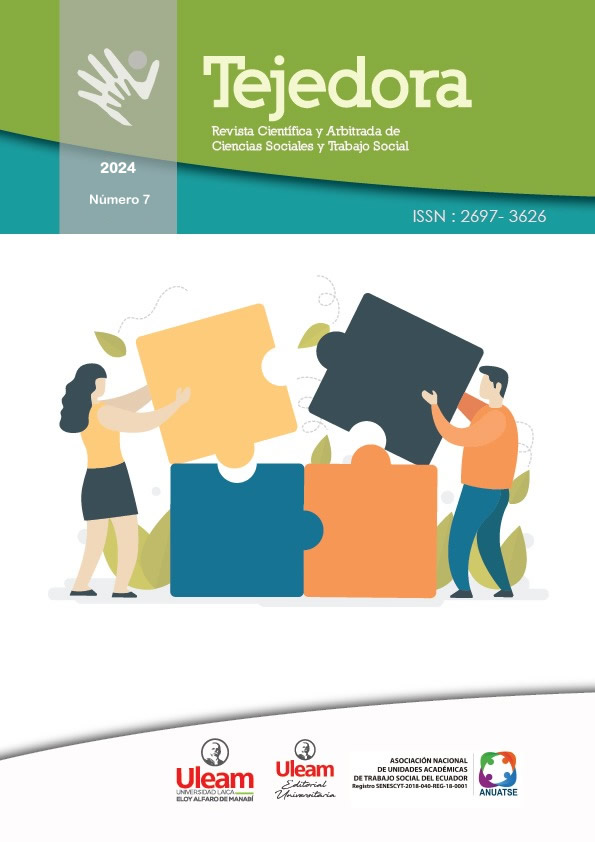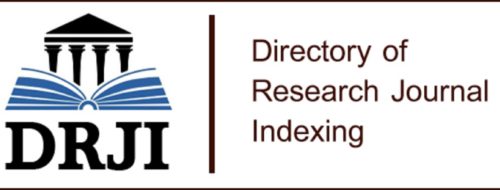RECREATIONAL PHYSICAL ACTIVITIES AS A STRATEGY FOR COMPREHENSIVE DEVELOPMENT IN STUDENTS WITH INTELLECTUAL DISABILITIES
DOI:
https://doi.org/10.56124/tj.v7i16.008Keywords:
Physical-recreational activities, Comprehensive development, Intellectual disabilityAbstract
The present study addresses the inclusion of students with intellectual disabilities in the context of physical education, highlighting the need for differentiated strategies to improve their learning and comprehensive development. The main objective was to analyze the impact of an educational program designed to promote social integration and group work in students with intellectual disabilities. To do this, qualitative and quantitative methods were applied, including interviews with teachers and direct observation in the classroom. The results indicate that half of the teachers consider that it is crucial to improve communication and social interaction between students, proposing adapted physical activities. The conclusions highlight the importance of implementing inclusive pedagogical tools that promote the active participation of these students in physical education classes, facilitating their physical and social development
Downloads
References
Arias, J. (2021). Diseño y metodología de la investigación (primera ed.). Lima, Perú: ENFOQUES CONSULTING EIRL. https://gc.scalahed.com/recursos/files/r161r/w26022w/Arias_S2.pdf
Asamblea Nacional Constituyente de Ecuador. (20 de Octubre de 2008). Constitución de la República del Ecuador 2008. Carta magna. Quito, Pichincha, Ecuador: Asamblea Nacional . https://www.defensa.gob.ec/wp-content/uploads/downloads/2021/02/Constitucion-de-la-Republica-del-Ecuador_act_ene-2021.pdf
Constante, M. (2022). El desarrollo socio afectivo en el nivel inicial de educación infantil del cantón Latacunga – Ecuador. Latacunga-Ecuador: Universidad de Extremadura. https://dehesa.unex.es/handle/10662/14238
Desiderio, W., Losardo, R., Bortolazzo, C., van Tooren, J., y Hurtado, E. (2021). Deporte, educación y salud. Revista de la Asociación Médica Argentina, 134(3), 8-14. https://d1wqtxts1xzle7.cloudfront.net/70120891/Deporte_educacion_y_salud-libre.pdf?1632335777=&response-content-disposition=inline%3B+filename%3DDeporte_educacion_y_salud_Sports_educati.pdf&Expires=1728485944&Signature=Mj0uawUgZ-uaS5MaXT4TIICye0sfcWsXJsNP
Hernández, B., Vargas, G., González, G., y Sánchez, J. (2020). Discapacidad intelectual y el uso de las tecnología de las información y comunicación: Revisión sistemática. INFAD Revista de Psicología, 2(1), 177-188. https://dehesa.unex.es/bitstream/10662/16095/1/0214-9877_2020_1_2_177.pdf
Hernández, R., y Mendoza, C. (2020). Metodología de la investigación: las rutas cuantitativa, cualitativa y mixta. Ciudad de México: McGRAW-HILL INTERAMERICANA EDITORES, S.A. de C. V. https://d1wqtxts1xzle7.cloudfront.net/64591365/Metodolog%C3%ADa_de_la_investigaci%C3%B3n._Rutas_cuantitativa__cualitativa_y_mixta-libre.pdf?1601784484=&response-content-disposition=inline%3B+filename%3DMETODOLOGIA_DE_LA_INVESTIGACION_LAS_RUTA.pdf&Expires=
Horna, E., Arhuis, W., y Bazalar, J. (2020). Relación de habilidades sociales y tipos de familia en preescolares: estudio de caso / Relationship of social skills and family types in preschoolers: case study. Revista Virtual Universidad Católica Del Norte(61), 224–232. http://34.231.144.216/index.php/RevistaUCN/article/view/1208
León, A., Mora, A., y Tovar, L. (2021). Fomento del desarrollo integral a través de la psicomotricidad. Dilemas contemporáneos: educación, política y valores, 1(33), 1-13. https://www.scielo.org.mx/pdf/dilemas/v9n1/2007-7890-dilemas-9-01-00033.pdf
NIeto, E., García, D., y Ávila, C. (2023). nfluencia de la actividad física recreativa en la autoestima en el adulto mayor. Polo del Conocimiento, 8(12), 107-132. doi:10.23857/pc.v8i12.6268
OMS. (07 de marzo de 2023). Discapacidad. Organización Mundial de la Salud: https://www.who.int/es/news-room/fact-sheets/detail/disability-and-health
OMS. (26 de junio de 2024). Actividad física. Organización Mundial de la Salud: https://www.who.int/es/news-room/fact-sheets/detail/physical-activity
OPS. (2022). Informe mundial sobre la discapacidad. OMS, Banco Mundial. Washington DC, EEUU: Organización Panamericana para la Salud. OMS: https://www.bing.com/search?pglt=675&q=donde+se+ubica+la+ops&cvid=8d9db0b83da947479f71a6b775195b1c&gs_lcrp=EgZjaHJvbWUyBggAEEUYOTIGCAEQABhAMgYIAhAAGEAyBggDEAAYQDIGCAQQABhAMgYIBRAAGEAyBggGEAAYQDIGCAcQABhAMgYICBAAGEDSAQg2NzM1ajBqMagCALACAA&FORM=ANNTA1&PC=U5
Organización Panamericana de la Salud. (2019). Más personas activas para un mundo más sano. Washington, D.C, EEUU: Organización Panamericana de la Salud. https://iris.paho.org/bitstream/handle/10665.2/50904/9789275320600_spa.pdf
Puerta, V. (2019). Cartilla didáctica descubriendo un nuevo mundo.Estrategias pedagógicas desde el hogar para el autocuidado en personas con discapacidad intelectual. Horizontes pedagógicos, 1-22. Dialnet-CartillaDidacticaDescubriendoUnNuevoMundo-7415990
Rodríguez, Á., Rodríguez, J., Guerrero, H., Arias, E., Paredes, A., y Chávez, V. (2020). Beneficios de la actividad física para niños y adolescentes en el contexto escolar. Revista Cubana de Medicina General Integral, 36(2), 1-14. http://scielo.sld.cu/pdf/mgi/v36n2/1561-3038-mgi-36-02-e1535.pdf
Rojas, V., y Pilco, G. (2023). Autoestima y Habilidades Sociales en Adolescentes. LATAM Revista Latinoamericana De Ciencias Sociales Y Humanidades, 4(1), 3823–3833. doi:https://doi.org/10.56712/latam.v4i1.529
Salazar, D. (2023). Actividad física recreativas en personas con discapacidad intelectual de la fundación Fervi, de la ciudad de Riobamba. Riobamba-Ecuador: Universidad Nacional de Chimborazo. http://dspace.unach.edu.ec/bitstream/51000/10963/1/UNACH-EC-FCEHT-PAFD-0016-2023.pdf
Simaleza, A., Figueroa, S., Delgado, C., y Pacheco, X. (2024). Juegos deportivos y habilidades motoras en niños adolescentes y jóvenes con discapacidad intelectual en el Ecuador. Ciencia Y Educación, 5(1), 6-15. doi:https://doi.org/10.5281/zenodo.10465888
Tarpuk, E., Cáceres, C., Ambato, N., & Campos, C. (2020). Actividad física, recreativa y cultural, alternativa para mejorar la calidad de vida de los adultos mayores rurales. Revista Digital de Educación Física, 11(62), 90-105. https://dialnet.unirioja.es/servlet/articulo?codigo=7186182
Vásquez, A. (2020). La discapacidad en América Latina. Ginebra, Suiza: OMS. Recuperado el https://www.paho.org/Spanish/DD/PUB/Discapacidad-SPA.pdf?ua=1
Zumba, M., y García, R. (2024). Programa Educativo para la Inclusión de estudiantes con Discapacidad Intelectual en la clase de Educación Física. Revista Científica. DOminio de las Ciencias, 10(2), 1043-1060. doi:https://doi.org/10.23857/dc.v10i2.3846
Published
How to Cite
Issue
Section
License
Copyright (c) 2024 Revista Científica y Arbitrada de Ciencias Sociales y Trabajo Social: Tejedora. ISSN: 2697-3626

This work is licensed under a Creative Commons Attribution-NonCommercial-ShareAlike 4.0 International License.
























